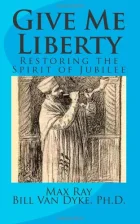 Yesterday we wrote about the warnings found in the New Testament about false teachers and the dangers their teachings posed to the church. The danger was real and the need of vigilance was urgent. But a teaching is not false because we do not agree with it nor is a teacher a false teacher because we do not believe what he teaches. In order to determine if a teaching is false or whether someone is a false teacher one must first know what is true. To make a charge against someone of being a false teacher is a very serious matter – one we need to be very careful about making.
Yesterday we wrote about the warnings found in the New Testament about false teachers and the dangers their teachings posed to the church. The danger was real and the need of vigilance was urgent. But a teaching is not false because we do not agree with it nor is a teacher a false teacher because we do not believe what he teaches. In order to determine if a teaching is false or whether someone is a false teacher one must first know what is true. To make a charge against someone of being a false teacher is a very serious matter – one we need to be very careful about making.
In his first letter to Timothy Paul describes the character, actions and motivation behind some who would teach a “different doctrine” as well as the result of their nefarious work. Here is how he described both the teachers and the result of their teaching.
“If anyone teaches a different doctrine and does not agree with the sound words of our Lord Jesus Christ and the teaching that accords with godliness, he is puffed up with conceit and understands nothing. He has an unhealthy craving for controversy and for quarrels about words, which produce envy, dissension, slander, evil suspicions, and constant friction among people who are depraved in mind and deprived of the truth, imagining that godliness is a means of gain.” (1 Timothy 6:3-5).
Notice that these teachers of different doctrines …
- Do not agree with the sound words of Jesus Christ.
- Are out of agreement with the teaching that accords with godliness.
- Are puffed up with conceit.
- Understand nothing.
- Have an unhealthy craving for controversy and quarrels about words.
- Imagine godliness is a way of gain.
Their teachings produce …
- Envy, dissension, slander, evil suspicions, and constant friction.
- People who follow them are depraved in mind and deprived of the truth.
These are ways we can identify unwholesome doctrine today. Doctrines that produce the kinds of things described above cannot be from Christ. James said this about the “wisdom” that is from above. …
“But the wisdom from above is first pure, then peaceable, gentle, open to reason, full of mercy and good fruits, impartial and sincere.” (James 3:17).
One could substitute “doctrine” for wisdom. Any time a doctrine fails to produce the fruits James lists we had best be suspicious of its origins! Truth is free from any thing that would destroy faith in Jesus. It is wholesome, nourishing, edifying and leads to greater trust in Christ who saves us. Anything that turns us away from faith in him to trust in ourselves or in human teachings and traditions is false and must be exposed.
There is not much difference between those today who will not speak the whole truth freely because they are afraid to lose their preaching jobs and these described by Paul who imagine that godliness is a means of gain. The only time some will speak out is when something threatens the accepted party line, which, if they did not defend would cause them to lose their jobs as well. It is easier for these to go along to get along than to fight against the tide of accepted opinion.
There were those who upset the faith of some by teaching that the resurrection had already occurred. Paul names “Hymenaeus and Philetus, who have swerved from the truth, saying that the resurrection has already happened. They are upsetting the faith of some.” (1 Timothy 2:18).
These and numerous warnings about false prophets and false teachers and teachings make us know that these were and will continue to be a problem among believers. They put us on notice that there must be a continual vigilance against these things. But just because someone does not agree with us one hundred percent on everything does not mean that that person is a false teacher. It could mean that we are wrong adn he is right about the point of difference or it could mean that we are both wrong. Or another possibility is that the difference makes no difference to the Lord except that we in our zeal to guard our “turf” destroy the love and unity that should prevail among ourselves as brethren.
There is one very familiar passage that warns about the consequences of not abiding in the “teaching of Christ” which is invariably brought up when someone happens to disagree with them on some teaching.
“Everyone who goes on ahead and does not abide in the teaching of Christ, does not have God. Whoever abides in the teaching has both the Father and the Son. If anyone comes to you and does not bring this teaching, do not receive him into your house or give him any greeting, for whoever greets him takes part in his wicked works.” (2 John 9-11).
These verses have been made the catchall for every imagined “false doctrine.” While the danger of error is real and has been duly warned against in the New Testament, to use this passage in this way ignores several real problems to correctly understanding it. Scholars have for years debated the real intent of the passage and whether it is teaching about Jesus or whether it is the teaching Jesus did including all that was taught by his authority through the apostles and inspired writers of the New Testament. I am not going to get into a technical discussion of grammar here. I believe we can determine what John meant without an appeal to technicality.
Remember that John had dealt extensively in his first letter with the nascent gnostic heresy of that day. We have already commented on the dire danger that heresy posed to the faith of Christians. Here in 2 John he obviously has the same false doctrine in view. Notice John’s words as he addresses the “elect lady” to whom he wrote this letter …
“I rejoiced greatly to find some of your children walking in the truth, just as we were commanded by the Father. And now I ask you, dear lady—not as though I were writing you a new commandment, but the one we have had from the beginning—that we love one another. And this is love, that we walk according to his commandments; this is the commandment, just as you have heard from the beginning, so that you should walk in it.” (1 John 4-6).
Walking in truth was walking in the commandments of God. What were those commandments? They were what “we have heard from the beginning.” It was the one they had had from the beginning – “that we love one another.” Now if the “doctrine of Christ” is what he taught, then likely it would be this John was writing about (John 13:34-35). This doctrine is so important that Jesus said his disciples would be known to the world by the fact that they obeyed it. It was their “badge of discipleship.” It was their banner of brotherhood. That is pretty important doctrine!
But there is something else in the next two verses we need to look at before we decide what John might have meant.
“For many deceivers have gone out into the world, those who do not confess the coming of Jesus Christ in the flesh. Such a one is the deceiver and the antichrist. Watch yourselves, so that you may not lose what we have worked for, but may win a full reward. (1 John 7-8).
The deceivers who were going about in the world of that day were the teachers of gnosticism – the doctrine that Jesus had not actually come in the flesh. As we noted before, this was a vicious attack on the validity of Christ’s atonement. If he had not come in a body of flesh he could not have actually died. If he had not actually died then he was not an actual sacrifice for sin. If he were not a sacrifice for sin, then no one’s sin has been forgiven. If our sins are not forgiven our hope is vain.
The truth that Jesus had actually come and died, providing us with a completely sufficient sacrifice is, I believe, the doctrine of Christ John is referring to. This is the essence of the gospel. This truth is the power of God to save us. It is this truth that motivates us to live for him who died for us. It is in this truth that our hope lies. Anyone who would teach anything other than this would be destroying the faith of those deceived by their false teaching.
Do verses 9-11 have any meaning for us today? Certainly! We must guard against anything that would turn us from faith in Christ as our exalted Lord and sufficient sacrifice. That would include anything that teaches a legally acquired standing on the basis of our performance or perfect knowledge – in short, modern-day legalism and/or gnosticism.
It is an abuse to make these verses a bludgeon with which to beat the heads of people who question the validity of our traditional, inferred doctrines. We should be very careful to extend the meaning of any passage beyond what the original author intended. The explanation we have given of this text stays within the context of the letter in which it is found and within the context of what John was very concerned to write about in his first letter. John was concerned with keeping Christ as the focus of life. To stay in the true doctrine of Christ assures that those who believe in him will keep his commandments. That is what faith does.
Even if it did include every false doctrine that actually ever could arise, it was never meant to include all the divisive inferred doctrines some have always attempted to cover by quoting these verses. Every doctrine ever devised over which people have divided has been dumped in 2 John 9-11. Anyone daring to question these dubious doctrines is “going on and abiding not in the doctrine of Christ.” “You know those who do that have neither the Father nor the Son!” Who can believe it?
Remember, in reading the Bible we must stay with the story. We cannot make a passage of scripture mean whatever we want it to mean. Such is dishonest with God and with ourselves and deceitful toward others. Above all, we must make Christ the focus of all our teaching and be true to the purpose for which God created us and for which Christ redeemed us.
It is high time good and honest seekers for truth begin to question the legalistic lords who make such threats. They may cast you out of the synagogue, but you can breathe fresh air on the outside of these morbid (unhealthy – diseased – unsound – ill – sickly) mausoleums!


